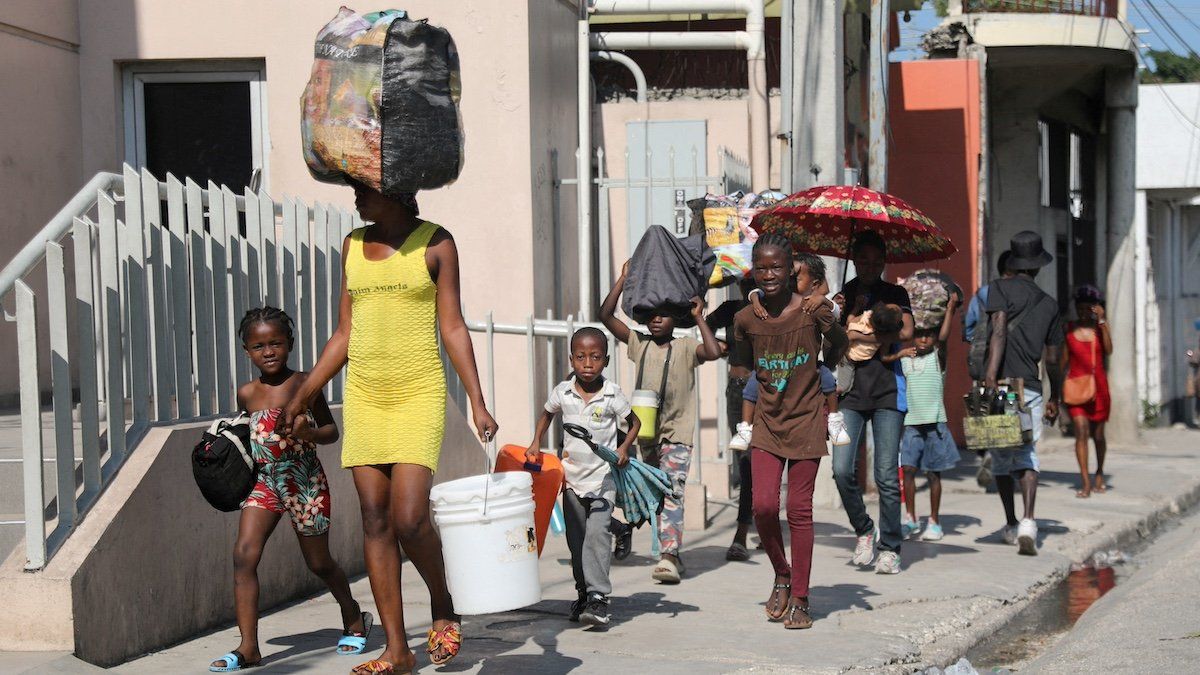Haitian Prime Minister Ariel Henry announced his resignation on Tuesday after nearly three years of growing violence and instability. With his international credibility shot and his inability to return to Haiti, Henry’s promised departure is no surprise, but who will emerge to lead is much less clear.
The transitional council: Washington and the regional bloc CARICOM are backing a council with seven voting members who will be able to execute certain presidential powers by majority vote.
Who exactly will serve on the council is still up in the air, but the political parties of major Haitian players, including those of former President Jean-Bertrand Aristide, former Prime Minister Claude Joseph, and former Senator Jean-Charles Moïse, are likely to form the core of the group.
“Whether that presidential council will be installed — and whether it has viability — remains to be seen because many of the participants in that presidential council do not agree on the way forward,” says Robert Fatton, who teaches Haitian politics and history at the University of Virginia. “Even if we have agreement among those Haitian parties, what do they do with the gangs? That's not clear at all.”
President Barbecue? As Fatton hinted, the man holding the high cards in Haiti today is Jimmy Chérizier, the gang leader better known as Barbecue. Heavily armed gangs associated with Chérizier paralyzed the capital, Port-au-Prince, over the last week with a series of coordinated attacks on the airport, prisons, and government offices.
Originally a police officer, the charismatic 47-year-old defected to the gangs he was meant to control and built a deadly alliance. He now portrays himself as a sort of Robin Hood figure — and promises more bloodshed unless he is made part of the post-Henry transition.
“He built his constituency with sheer violence,” says Fatton, elaborating that established politicians nurtured gangs in the slums of Port-au-Prince. “They are now the coercive force in Haiti. So how do you deal with them?”
A Kenyan-led intervention was meant to help Haiti’s government reestablish control over gang-dominated neighborhoods, but Nairobi now says a new government must be in place first. Even if it does go forward, the force will be outnumbered and may attract backlash if it fails to keep civilians safe.
The man in the middle. Somewhere between the suit-and-tie politicians and the gangsters lies Guy Philippe. Another cop-turned-street figure, Philippe led the 2004 coup but faded fast in the aftermath. He was elected to Haiti’s senate in 2016 but was arrested before taking his seat and served a drug trafficking sentence in the US.
Last year, American authorities turned him loose in Haiti, and he’s been building a political movement ever since. He wants to be appointed to a different transitional council of just three people, with him in charge. He says he has the connections in the political sphere and on the street to negotiate with all parties, and at least one power player, Jean-Charles Moïse, has been flirting with both Philippe and CARICOM’s proposed councils.
So will Haiti end up with a leader who was just in a US prison cell? Fatton says it would be a hard pill for Washington to swallow in an election year. “But we've seen very strange alliances between Haitian rulers and foreign powers,” says Fatton. “So the impossible in Haiti may be possible.”


















